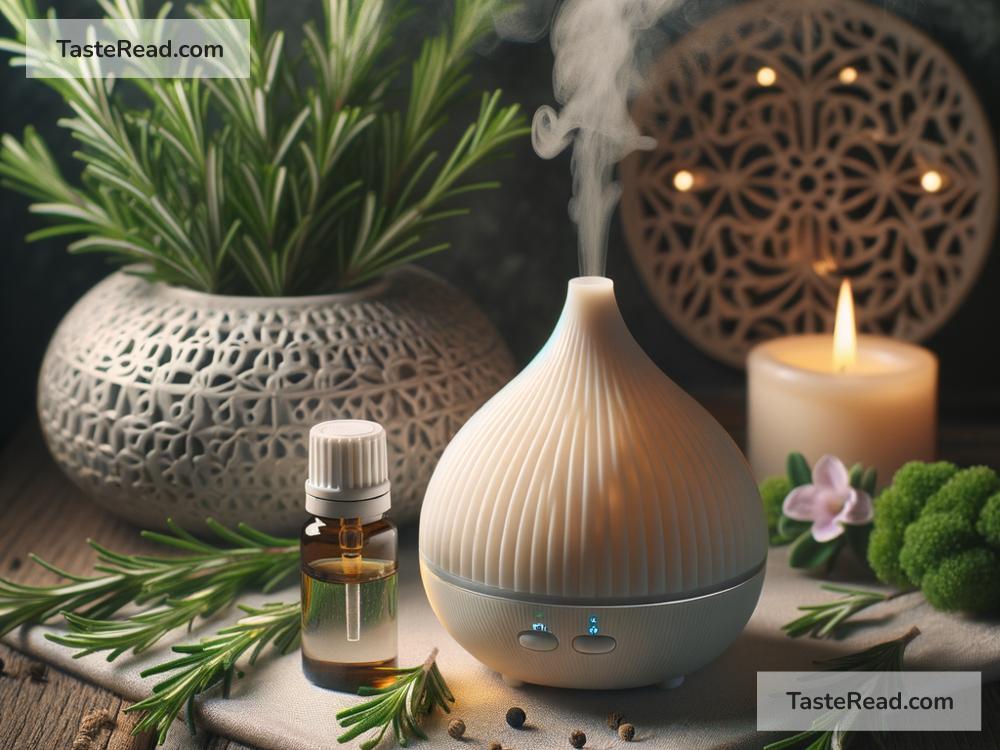The Curious Uses of Rosemary in Aromatherapy
Aromatherapy is a wonderful world that uses plant-based essential oils to improve well-being. Among the many oils people love, rosemary essential oil stands out for its unique properties. This plant, often found in kitchens seasoning meals, has surprising uses when it comes to scent and health benefits. Let’s dive into the fascinating ways rosemary is used in aromatherapy.
What Is Rosemary?
Rosemary is a fragrant herb native to the Mediterranean region. It has been used for thousands of years in cooking, medicine, and rituals. Its needle-like leaves and woody stems produce essential oils that smell fresh, earthy, and herbal. But rosemary isn’t just a tasty herb—it has powerful properties that make it valuable in aromatherapy.
How Does Aromatherapy Work?
Aromatherapy uses natural essential oils extracted from plants to affect your mood, health, and overall well-being. You can breathe in the oils, apply them to your skin (diluted with a carrier oil), or even diffuse them into the air. Scents communicate with your brain through smell receptors, influencing emotions and nervous system responses. Rosemary essential oil is especially popular for how it interacts with the mind and body.
Rosemary for Mental Clarity and Focus
Ever feel sluggish and have a hard time concentrating? Rosemary oil might be your new best friend! This essential oil is often praised for its ability to boost mental clarity and focus. When the crisp, herbal scent of rosemary hits your senses, it can help awaken your brain and improve concentration.
Several studies suggest rosemary may enhance memory and mental performance. For example, a study in 2012 showed that inhaling rosemary essential oil improved memory and alertness. This is why many students and professionals turn to rosemary aromatherapy during exams or work projects. Simply diffusing rosemary oil in your study or workspace can create a focused, vibrant atmosphere that helps you stay motivated.
An Energy Booster
Feeling tired or sluggish? Rosemary oil is excellent for restoring energy when you’re feeling drained. It has a stimulating effect that can help kickstart your day or keep you going during an afternoon slump. Instead of reaching for another cup of coffee, try diffusing rosemary oil for a natural energy boost.
You can use rosemary oil in your morning routine by adding a few drops to a diffuser or shower steam. The invigorating aroma energizes not only your body but also your mood—setting the tone for a more productive day.
Stress Relief and Emotional Balance
Although rosemary is known for its stimulating properties, it can also help calm your mind when you’re dealing with stress. Its fresh, earthy scent has grounding qualities that promote emotional balance. Many people turn to rosemary aromatherapy after a long, hectic day.
To use rosemary oil for stress relief, you can mix a few drops with a carrier oil like coconut oil and massage it onto your temples or wrists. You can also diffuse it during meditation or relaxing moments at home. By connecting to rosemary’s comforting scent, you may feel more centered and peaceful.
Boosting Circulation and Relieving Tension
Rosemary oil doesn’t just work wonders for your mind—it’s great for your body, too. When applied to the skin (after diluting with a carrier oil), rosemary can help boost circulation and ease tense muscles. It’s often included in massage therapy to relieve soreness and promote blood flow.
If you experience body aches or stiffness, try adding rosemary oil to your massage routine. Simply mix a few drops with a carrier oil and gently rub it onto areas where you feel discomfort. The warming and invigorating properties of rosemary can help your body relax and recover.
Supporting Respiratory Health
Got a stuffy nose or difficulty breathing? Rosemary aromatic compounds may help open up airways and make breathing easier. Its scent is often used in steam inhalation for respiratory support.
To do this, boil a pot of water, add a few drops of rosemary essential oil, and lean over the steam while covering your head with a towel. This soothing remedy may help clear congestion and support lung health, especially during cold or allergy season.
Combining Rosemary with Other Oils
One of the fun aspects of aromatherapy is blending different oils. Rosemary pairs well with many essential oils, such as lemon, peppermint, lavender, and eucalyptus. Depending on your mood or needs, you can create your own custom blends for energy, relaxation, or focus.
For example:
– Energy Boost: Combine rosemary and lemon oils for an uplifting mix.
– Stress Relief: Blend rosemary and lavender oils for a calming fusion.
– Memory Aid: Pair rosemary with peppermint oil to stimulate the mind.
Experimenting with blends lets you explore the wide range of benefits rosemary offers.
Safety Tips for Using Rosemary Oil
While rosemary essential oil has many great uses, you should always use it safely. Essential oils are highly concentrated and should never be applied directly to the skin. Always dilute them with a carrier oil like almond, coconut, or jojoba oil before applying. If you’re pregnant, have health conditions, or are taking medication, consult a healthcare professional before using rosemary oil. And if you’re diffusing it, make sure to use small amounts to avoid overpowering your space.
Final Thoughts
Rosemary is more than just a cooking herb—it’s a versatile, powerful essential oil with diverse benefits. From boosting focus to relieving stress and aiding respiratory health, rosemary aromatherapy has a lot to offer. Whether you need extra energy or a moment of calm, this fragrant oil is a great tool for improving your well-being.
Next time you smell rosemary, remember it isn’t just a spice for soups or roasts. It’s a natural remedy with ancient powers that can help your body, mind, and mood. Aromatherapy enthusiasts love it—and once you try it, you might too!


